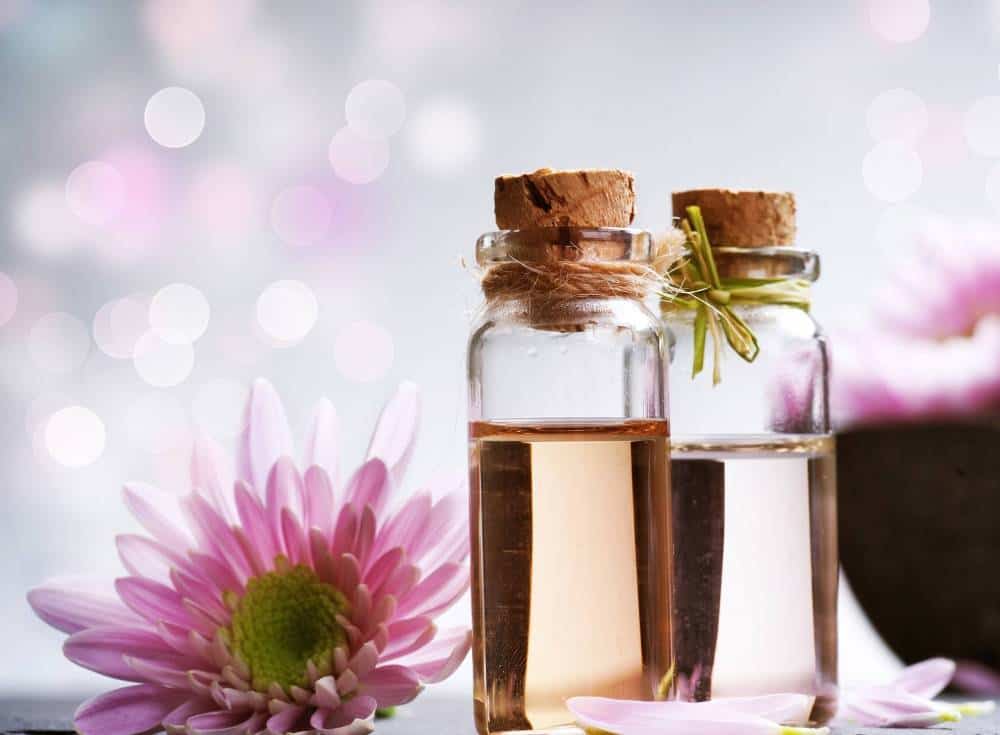
If you suffer from eczema, you know how irritating and uncomfortable it can be. I only have a mild case myself but my son is unlucky – he has itchy, inflamed patches of skin almost all the time. I’ve tried everything to help him, but even using medicated creams doesn’t provide a long term cure.
I’m thankful for over-the-counter medicines when the itching becomes too much, however, I don’t like to use them for my son every day – or even every week. I prefer natural remedies, so when I read that essential oils might help ease eczema symptoms, I was excited. Let me share with you the best essential oils for eczema and how to use them.
What is Eczema?
Eczema is a chronic skin condition where patches of skin become extremely dry, itchy and inflamed. The cause is usually genetic. The skin’s protective barrier does not function as it should – lacking in oils and unable to retain moisture. It goes hand-in-hand with certain allergenic triggers such as certain foods and chemical irritants. (source)

Eczema can appear at any age and on any body part, but it’s usually found on the arms, legs, knees, elbows, cheeks, and forehead. (source) Unfortunately there’s no cure for eczema at present but symptoms can be reduced by using products which add moisture such as emollients and medicated creams.
Symptoms of Eczema
Eczema ranges in severity however, these are some of the most common symptoms:
- Dry, itchy skin
- Blisters
- Oozing liquid from the skin
- Mild bleeding upon scratching or skin cracking
- Crusty areas either darker or lighter than the usual skin tone
- Scaling
- Swelling
Some Eczema Triggers
Each person will have different triggers for an eczema flare-up but it’s vital that you identify and avoid yours. Try to use neutral, unscented shower products and soaps and always use gloves when using household cleaners.
Common triggers include:
- Soaps, detergents, shampoos and disinfectants
- Pet dander, pollen, mold
- Bacteria, viruses, fungi
- Weather/temperature change
- Foods e.g. dairy, eggs, nuts
- Wool and synthetic fibers
- Stress
- Hormonal factors
(source)
The Best Essential Oils for Eczema

The key to managing eczema is to keep the skin soft and moist. Oils are good at this – they coat the skin, trapping water inside. This creates a barrier to irritants and allergens. Essential oils with anti-inflammatory or antibacterial properties can help ease eczema symptoms too. (source)
1. Lavender Oil
Lavender oil is well-known for its pleasant fragrance and relaxing effects, but did you know it has some pretty amazing healing properties too? Test tube studies have shown that lavender has broad spectrum antifungal powers and it can also speed up wound healing significantly. (source)
2. Eucalyptus Oil
The medicinal powers of eucalyptus are mostly due to the compound cineole. Cineole has antibacterial and anti-inflammatory properties. The oil also contains eucalyptol which imparts a cooling sensation – this comes in handy to relieve the persistent itching associated with eczema. (source)
3. Chamomile Oil
Chamomile doesn’t just soothe your mind but it can soothe your skin too. Roman and German chamomile oils both have anti-inflammatory powers shown to be superior to over-the-counter painkillers and steroid creams! I’m impressed. (source)
4. Tea Tree Oil
Tea tree oil has been used in Australia for hundreds of years as a natural remedy for cold symptoms, wound healing and infections. Its antimicrobial powers will help kill any bacteria that could trigger an eczema outbreak. The Journal of Investigative Dermatology discovered that it even helps fight MRSA! Powerful stuff.
5. Bergamot Oil
Bergamot oil is derived from a species type of orange and has been used historically as a natural remedy in Italy . It has been shown to reduce inflammation by as much as 63%. (source) It’s also a source of natural antimicrobials. (source)
6. Turmeric Oil
The compound curcumin is responsible for turmeric’s potent anti-inflammatory effects. It provides relief when applied to the skin or taken orally, so now might be a good time to start cooking Indian recipes using this spice! (source)
7. Thyme Oil
Thyme is yet another natural oil with antimicrobial, anti-inflammatory and pain-relieving properties. It has even been found to have some effects against MRSA. (source)
8. Clove Oil
I first heard of clove oil when I asked my local pharmacist for something to treat a toothache. Clove oil can thank the compound eugenol for most of its medical benefits. Clove oil has antimicrobial, anti-inflammatory and even anaesthetic effects. (source)
9. Rose Oil
Roses may look sweet but rose oil packs a powerful punch. It’s been shown to kill bacteria in under 5 minutes. (source) Be careful with this one though, it’s an aphrodisiac too. (source)
10. Fennel Oil
Fennel is mostly used in cooking (I like it raw in salads) but it also contains anethole which has anti-inflammatory properties, making it useful for eczema. (source)
The Best Carrier Oils for Eczema
Most essential oils should not be applied directly to the skin as they are very concentrated and can cause irritation. Therefore you must use what’s called a “carrier oil”. Carrier oils are neutral, usually odorless oils that literally “carry” the essential oil to where it’s needed.
When it comes to the best carrier oils for eczema, there are a few things to look out for. Many carrier oils contain vitamin E which is an excellent nutrient for the skin. It’s a natural component of sebum which is lacking in eczema. (source)
Omega-3 fatty acids help boost your skin’s protective barrier, keeping it soft and supple. (source) Oils with high antioxidant levels may also be beneficial for eczema sufferers.
Some of the best carrier oils for eczema are: sunflower oil, coconut oil, avocado oil, olive oil, almond oil, jojoba oil and evening primrose oil. (sources 1, 2)
How to Use Essential Oils for Eczema
Nourishing Bath
Add 6 drops of essential oil with 2-3 tablespoons of carrier oil to a warm bath and soak for 30 minutes.
Cooling Compress
To relieve itch, add 2 drops of essential oil to a bowl of cool water. Stir to distribute and then soak a cloth in the mixture. Squeeze the cloth out until damp and apply to the affected areas.
Anti–Itch Spray
Find a small spray bottle and add 10 drops of essential oil and 5 tablespoons of carrier. Make the rest up with water. Shake vigorously before use.
Calming Lotion
Add 20 drops of essential oil to 8 ounces of unscented lotion. Shea butter and Vitamin E Cream are good options.
Massage Oil
Use 2-4 drops of essential oil and 1 tablespoon of carrier oil to massage your dry skin directly
Conclusion
Now that I’ve given you the resources regarding the best essential oils for eczema and how to use them, I hope you have fun experimenting and making up your own oil lotions and potions. Remember that we all have slightly different skin properties so the same remedy won’t work for everyone. Always do a patch test before trying any of the above on a large area of skin.
Leave a comment